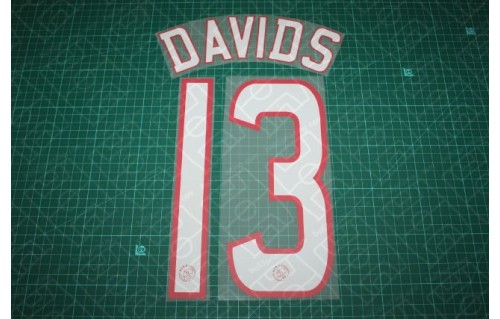The name “David” carries a rich tapestry of cultural, historical, and linguistic significance. Across time and geography, David has maintained a persistent and widespread presence, appearing in religious texts, royal bloodlines, literature, and modern media. But what exactly does the term “David’s nameset” imply? Is it simply a collection of similar names, or does it encompass something more profound — like heritage, linguistic roots, and global influence?
In this article, we delve into the intricacies of David’s nameset exploring the origin, variations, cultural importance, and how the name continues to evolve in today’s world.
What Is a Nameset?
Before we examine David’s nameset specifically, it’s crucial to understand what a nameset actually is.
A nameset refers to a collection of names that are derived from or related to a specific name. These names may be variations, diminutives, translations, or nicknames of the original name. Namesets often reflect linguistic diversity, cultural evolution, and personal identity over time.
In the case of David, its nameset includes versions used in different languages and cultures, from Dawid in Polish to Davide in Italian, each carrying its own charm and context.
The Origin of the Name David
The name David is of Hebrew origin, stemming from the word “Dawid” (דָּוִד), which means “beloved” or “uncle”. It gained prominence in ancient Israel through King David, the second king of the united Kingdom of Israel and Judah, renowned as a warrior, poet, and the reputed author of many Psalms.
Biblical Significance
King David is one of the most pivotal figures in the Old Testament, known for slaying Goliath and establishing Jerusalem as the capital. As a result, the name became especially popular in Jewish, Christian, and Islamic cultures, with references found in the Bible, Torah, and Quran.
Global Variations in David’s Nameset
David’s nameset is a testament to the name’s global reach. Here are some prominent and culturally significant versions of the name:
| Language | Name Variant | Pronunciation |
| Hebrew | דוד (Dawid) | DAH-veed |
| English | David | DAY-vid |
| Spanish | David | dah-VEED |
| Italian | Davide | DAH-vee-deh |
| French | David | da-VEED |
| Russian | Давид (Davit) | dah-VEET |
| Polish | Dawid | DAH-veed |
| Arabic | داوود (Dawud) | da-WOOD |
| Portuguese | Davi | dah-VEE |
| Welsh | Dewi | DEH-wee |
These variations reflect not just linguistic adjustments but also regional preferences phonetic simplifications and cultural integration.
Famous People Named David
The universal appeal of the name has made it a favorite among many historical and modern figures, which further enriches David’s nameset:
- King David of Israel – The archetype of faith, courage, and leadership.
- David Bowie – Iconic British musician and actor.
- David Beckham – International football legend.
- David Attenborough – Renowned broadcaster and natural historian.
- David Lynch – Acclaimed filmmaker known for surreal storytelling.
- David Cameron – Former UK Prime Minister.
Each of these individuals has added layers of meaning to the name, associating it with talent, leadership, and creativity.
Nicknames and Pet Forms in David’s Nameset
Beyond linguistic variations David has many affectionate or informal versions used across cultures:
- Dave – Common in English-speaking countries.
- Davy/Davie – More personal and endearing.
- Dudu – Used in some Israeli and Brazilian communities.
- Dee – Minimalist and modern.
- Dav – Often seen in texts or casual speech.
These pet forms are integral to David’s nameset, as they reflect intimacy personality and individual identity.
The Name David in Popular Culture
David has also found a stronghold in literature films and fictional universes:
- David Copperfield by Charles Dickens – A classic novel exploring personal growth.
- David Starsky from Starsky & Hutch – A cultural TV icon.
- David Fisher in Six Feet Under – A deeply complex character.
- David Haller in Legion – A Marvel character with immense powers.
These representations continue to keep the name relevant and dynamic in the public imagination.
David’s Nameset in Modern Society
Today, David remains one of the most enduring male names in the world. According to various national statistics:
- It has consistently ranked in the top 100 names in the U.S., U.K., and many European countries.
- It is a popular biblical name for newborns across Christian and Jewish families.
- It’s often chosen for its universality classicism and positive meaning.
In modern naming trends, where creativity and uniqueness are emphasized, David’s simplicity and timeless quality give it a strong foothold.
Cultural and Emotional Value
The emotional weight of the name David often carries trustworthiness reliability and kindness. Many parents choose it not only because of its religious or cultural roots but also due to its elegant resonance and easy pronunciation across languages.
It’s a name that transcends boundaries connects generations, and evokes admiration — a rare feat in a world where names often fall in and out of fashion quickly.
Digital Identity and David’s Nameset
Interestingly, the concept of namesets has taken on a new dimension in the digital age. On platforms like gaming networks, social media, or online identities, “David” often appears with creative twists, such as:
- xXDavidXx
- D4v1d
- TheRealDavid
- David_007
These alterations are not just stylistic but a way to preserve uniqueness in digital environments where usernames must often be exclusive.
Conclusion
The term “David’s nameset” is far more than a list of name variations it is a symbol of legacy linguistic diversity, and cultural adaptation. From its ancient Hebrew roots to its presence in Hollywood and global sports arenas David continues to be a beloved and iconic name.
Its nameset includes a vast array of linguistic forms, nicknames, and modern adaptations, reflecting the rich heritage of this timeless name. Whether used formally affectionately or digitally David stands as a name that resonates across generations and geographies.




